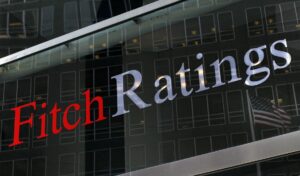AfDB appoints a new Vice President
By David Awoyemi
The African Development Bank (AfDB) has appointed Marie-Laure Akin-Olugbade, a Cameroonian national as the newly Vice President responsible for its Regional Development, Integration, and Business Delivery Complex.
The new Vice President, Akin-Olugbade is a seasoned Senior Executive with close to 31 years of experience, delivering technical, managerial, and strategic knowledge and leadership in capital markets, treasury, asset management and product development at the African Development Bank(AfDB).
However, the President of the African Development Bank Group, Dr Akinwumi Adesina said, “I am pleased to appoint Mrs Marie-Laure Akin-Olugbade as the Vice-President for the Regional Development, Integration and Business Delivery Complex of the bank. She would thereafter provide strong and effective leadership to the complex.”
Further speaking, Marie-Laure is a seasoned and respected professional and business leader.
“She has extensive hands-on experience in banking and development and would ensure that the bank operates successfully across its regional member countries and will oversee the full implementation of all aspects of our regional directorates in furtherance of the bank’s development mandate.”
Working with the largest team of country managers in the institution, she was engaged in the full complexity of its lending and non-lending operations in middle-income and low-income countries. These have included transition states, as well as innovative and complex cross-border operations.
While commenting on her appointment, Akin-Olugbade said, “I am very grateful to the African Development Bank President, Dr Akinwumi Adesina, for the confidence and trust, which was bestowed on me by this appointment. I look forward to working under Dr Adesina’s leadership.
“With the dedicated and talented team of Directors General, Directors, Deputy Directors, Country Managers, the bank’s operational complexes, the senior leadership team, and our Board of Directors, to enhance the effectiveness, efficiency, and delivery of quality operations for all beneficiaries in our regional member countries.”
Before her appointment, she was Acting Vice President for the complex, and Director General of the bank’s Business Development and Delivery Office for the West Africa Region.
She led the development and implementation of transformative strategies, programmes, and transactions, positioning the African Development Bank as the “Solutions Bank.”
She oversaw the accelerated delivery of results on the $9billion West Africa portfolio, engaging with governments, the private sectors, regional economic communities, and non-state actors, to achieve significant, life-transforming development impact.
The new Vice President joined the African Development Bank (AfDB) in the trading room of its Treasury Department in 1991 as a finance assistant, where she worked until 1993 where she became an investment officer.
She served in that role from 1993 to 1997, managing the bank’s assets in international capital markets.
Subsequently, she became a principal financial analyst in the Financial Technical Services Division, where she was responsible for clients’ financial solutions across the continent.
She was appointed Manager of the Bank’s Financial Technical Services Division in 2008 and held that position through 2010.
In that role, she oversaw new product development, client financial solutions and risk management services. She also led the team that authored the African Fixed Income and Derivatives Guidebook published in 2010.




